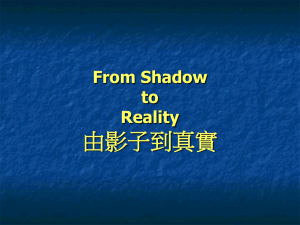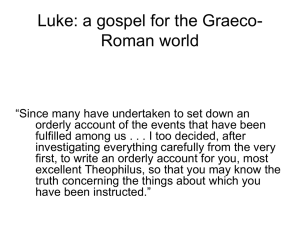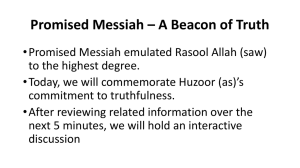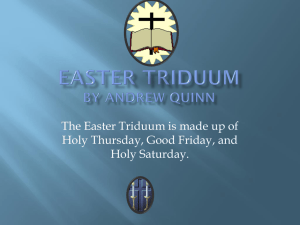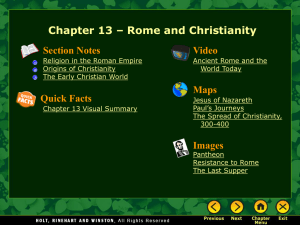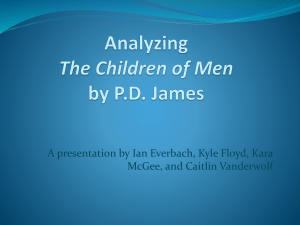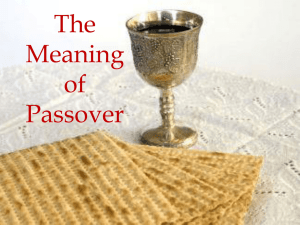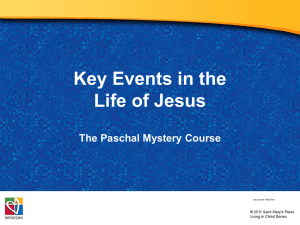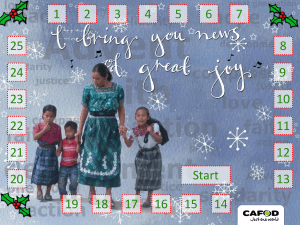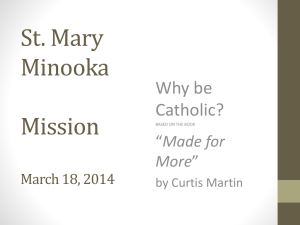Coming of the Messiah power point
advertisement
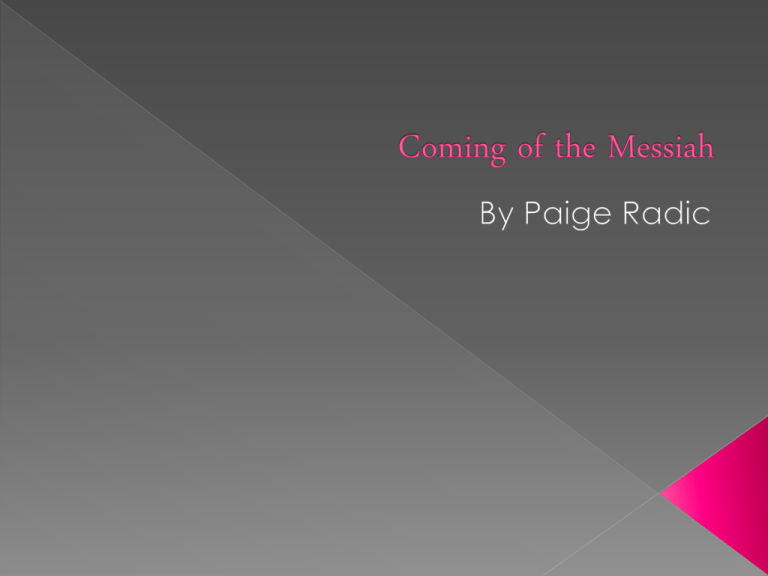
A leader or saviour of a particular group or cause The promised deliverer of the Jewish nation prophesied in the Hebrew Bible. Jesus was regarded as the Messiah, which was the saviour of humankind. The messiah can also mean the ‘anointed one’. The old Testament makes a substantial number of references to the ‘coming of the messiah’ or the ‘chosen one’. The major prophecy in the book of Isaiah was that a Messiah will save Israel and restore ‘everlasting peace’ (Isaiah 2) and rule over the united nation of Israel The covenant made between God and Abraham, that his descendants would never end, gives insight that the messiah would be of the Davidic line. An advisor of King David also received a prophecy, God spoke to him and said the Davidic line is everlasting. This prophecy is linked with Luke’s Gospel as Luke 3:23-38, lists the descendents of Kind David all the way to Jesus Christ. Furthermore with the Messiah being of the Davidic line, and the prophecy to Isaiah, saying ‘he will rule over Israel’, people were expecting a political leader, that would be King. Isaiah 9:2-7 gives the prophecy of the coming of the Messiah Isaiah 2:3-5, “.... He will teach us what he wants us to do; we will walk in the paths he had chosen. For the LORD’s teaching come from Jerusalem; from Zion he speaks to his people. He will settle disputes among great nations. They will hammer their swords into ploughs and their spears into pruning knives. Nations will never again go to war, never prepare for battle again. now descendents of Jacob, let us walk in the light which the LORD gives us.” This passage found in the Old Testament, depicts a prophecy that Isaiah received about the coming of the chosen one, the messiah. The way that it mentions that the messiah would “settle disputes among great nations” refers to the union of a gentile and Jewish community. Luke as an author also strove to resolve such a dispute by writing the Gospel to both a Jewish yet more Gentile community. Outlining that the messiah was the chosen one to resolve all disputes and unite the people to form a single and whole community. Isaiah 9:6-7, “... A child is born to us! A son is given to us! And he will be our ruler. He will be called ‘wonderful counsellor’, ‘mighty god’, ‘eternal father’ and ‘prince of peace’. His royal power will continue to grow; his kingdom will always be at peace. He will rule as Kind David’s successor, basing his power on right and justice, from now until the end of time”. This passage alerts the audience to what type of messiah the people of Israel were looking for. The term ‘ruler’ and ‘royalty’ mentioned indicates that the people were expecting a political messiah. It also makes reference to the theme of fulfilment as the child was given to humankind to unite the community. Also the reference to him as ‘might one’ is evident throughout the New Testament and throughout the gospel of Luke. The Magnificat describes Jesus as ‘might one’. The New Testament, more tells the audience about how the messiah has come and his fulfilment of the prophecies. All the Gospels wrote about the birth of Jesus and, how he was the chosen one. This is evident in the infancy narratives. Matthew 1:18-24, Mark begins his gospel after the birth of Jesus has occurred, Luke 2:1-21 and John also like Mark begins his gospel after the birth of Jesus. The New Testament also sheds light on the last prophet; John the Baptist. The way that the infancy narratives are placed in most gospels, especially in Luke, emphasises the different roles of the two children. John the last prophet, paving the way for the true messiah, Jesus Christ. The New Testament also makes reference to the ‘everlasting covenant’ where Jesus is the life to be taken to save human kind. Which elaborates on the purpose of the messiah, to preach God’s words and will, then make the ultimate sacrifice for humankind. The New Testament also reveals Jesus’ message to the community. It’s evident that the teachings of Jesus, preached the Kingdom of God was for everyone and his love expanded to all the community. This is especially evident in the Gospel According to Luke. Luke 22:14-23, “Before I suffer...this is my body given for you” these versus depict that the everlasting covenant is referred to. The giving of Jesus’ body signifies the pain that Jesus will endure to have human kind. Mark 9:23-24, “Everything is possible for the person who has faith” this emphasises that ‘the person’ is everyone, the whole community and therefore Jesus is preaching to everyone who has faith in God, and the Kingdom of God. The coming of the messiah is evident in the gospel of Luke. The teachings of Jesus are in Chapter 6 of the gospel. In Luke’s Gospel john the Baptist is mistaken for the messiah, and this comparison between there births emphasises that specific roles of the children. There is also a great repetition of the words, “song of God”, “Messiah”, “Chosen One” and “Son of Man” which highlight that Jesus was the Messiah. The birth of John (Luke 1:57-66) and the birth of the messiah (Luke 2:1-7) are closely positioned to highlight the comparison. John is the prophet born before the messiah who is to lead the way for Jesus. The child “will be called the prophet of the Most High” (Luke 1:67-80) which shows that the John was the prophet of the Chosen One of the messiah. Also John specifically mentions while baptising that he isn’t the messiah and that there is “one who is more powerful than I is coming” (Luke 3:15-16). Luke Chapter 1. emphasises the importance of the messiah and announces that he is coming. Zechariah’s Prophecy 1:67-80 states; “he has shown us the mercy promised”. Which indicates that the child Jesus is the promised one. Luke Chapter 4. the beginning of Jesus’ ministry and his teachings. 4:16-30, is where Jesus subtly mentions his position and status. Also in that passage he says “Today this scripture had been fulfilled”. This indicates that he is the messiah that has been sent and he has fulfilled the scriptures. Luke Chapter 6. “for power came out of him” (6:19) this emphasises the power not only of the Jesus but also the power of God himself. This chapter especially 6:27-36 describes Jesus’ teachings and purpose. 2004, “The Catholic Youth Bible International Edition”. New Revised Standard Version: Catholic Edition. St Mary’s Press, China Tannehill, Robert C. “Abingdon New Testament Commentaries: Luke”, 1996, Abingdon Press, Nashville. Bryne, Brendan. “The Hospitality of God: A reading of Luke’s Gospel”, 2000, St. Paul Publications, Strathfield NSW.
